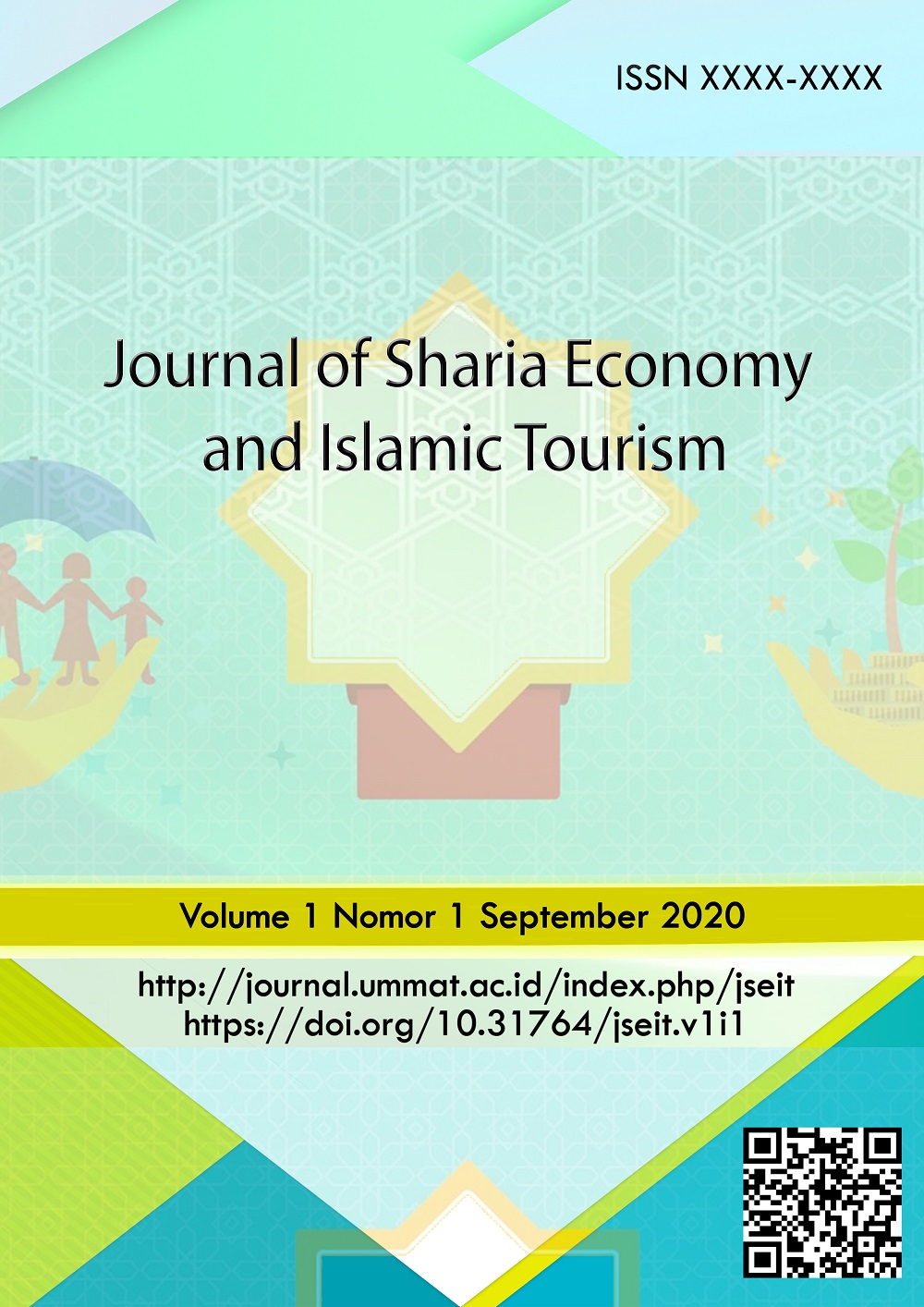POLICY STRATEGY OF RURAL AGRIBUSINESS BUSINESS DEVELOPMENT PROGRAM IN THE DEVELOPMENT OF AGRICULTURAL-BASED SHARIA MICROECONOMICS IN WEST SUMBAWA REGENCY
DOI:
https://doi.org/10.31764/jseit.v1i1.3847Keywords:
PUAP, Financing, AgricultureAbstract
A common problem for farmers so far is not having good access to financing institutions, making it difficult to obtain credit or financing of agricultural businesses, such as people's business loans (KUR) from banks. That's why, the Directorate General of Infrastructure and Facilities and Agriculture (PSP) Ministry of Agriculture ( Kementan) rolled out the Rural Agribusiness Business Development Program (PUAP) until now. With the revitalization of agricultural financing is expected to be one of the efforts aimed at encouraging and guaranteeing the availability of financing / capital for farmers in the development of farming To support the success of agricultural development, the government through the Minister of Agriculture of the Republic of Indonesia provided Direct Assistance to the Rural Agribusiness Development Community (BLM-PUAP) which was rolled out to the Combined Farmer Groups (Gapoktan) in each village, with the hope that all villages in NTB Province, especially in West Sumbawa Regency can be accommodated.
Â
References
Badan Pelaksana Penyuluhan Pertanian Perikanan dan Kehutanan Kabupaten Sumbawa Barat, 2011. Laporan Perkembangan BLM-PUAP. Taliwang.
Direktorat Pembiayaan Ditjen Prasarana dan Sarana Pertanian. Pedoman Penumbuhan Lembaga Keuangan Mikro Agribisnis (LKM-A) Gapoktan PUAP, Jakarta. 2011.
Ditjen PSP. Kementrian Pertanian. Petunjuk Teknis Kredit Usaha Rakyat di Sektor Pertanian. 2016.
Ditjen PSP. Kementrian Pertanian. Pedoman Teknis Pelaksanaan
Fasilitator Pembiayaan Pertanian Swadaya. 2019.
file:///C:/Users/Documents/hasil penelitian/Juklak PUAP Jabar.html, diakses 15 Maret 2012.
Kementerian Pertanian, 2012. Petunjuk Teknis Verifikasi Dokumen Administrasi dan Penyaluran Dana BLM-PUAP.
Prasetya Irawan, 2009:4.21. Materi Pokok Metodelogi Penelitian Administrasi; 1 – 12, cetakan 4. Universitas Terbuka. Jakarta.
Sugiyono, 2011:38. Metode Penelitian Kuantitatif, Kualitatif dan R & D. Cetakan ke-14. Alfabeta. Bandung.
Milles, M. B., Hubberman, A., & Saldana, J. (2014). Qualitatif Data Analysis: A Method Sourcebook (3rd ed). USA : SAGE Publications, Inc.
Sajogyo. (2007). Pertanian dan Kemiskinan. www.ekonomi rakyat.org. Jurnal Ekonomi Rakyat.
Sulaiman. Rahman. (2005). Sumber Pembiayaan Ekonomi Kreatif untuk Kesejahteraan Bangsa. Jakarta: Kapita Selekta Ekonomi Indonesia. Fajar Interpratama Offset.
Suyatno B dan Karnaji. (2005). Kemiskinan dan Kesenjangan Sosial : Ketika Pembaangunan Tak Berpihak Kepada Rakyat Miskin. Surabaya: Airlanga University Press.
Downloads
Published
Issue
Section
License
Authors who publish articles in Journal of Sharia Economy and Islamic Tourism agree to the following terms:
- Authors retain copyright of the article and grant the journal right of first publication with the work simultaneously licensed under a CC-BY-SA or The Creative Commons Attribution–ShareAlike License.
- Authors are able to enter into separate, additional contractual arrangements for the non-exclusive distribution of the journal's published version of the work (e.g., post it to an institutional repository or publish it in a book), with an acknowledgment of its initial publication in this journal.
- Authors are permitted and encouraged to post their work online (e.g., in institutional repositories or on their website) prior to and during the submission process, as it can lead to productive exchanges, as well as earlier and greater citation of published work (See The Effect of Open Access).

